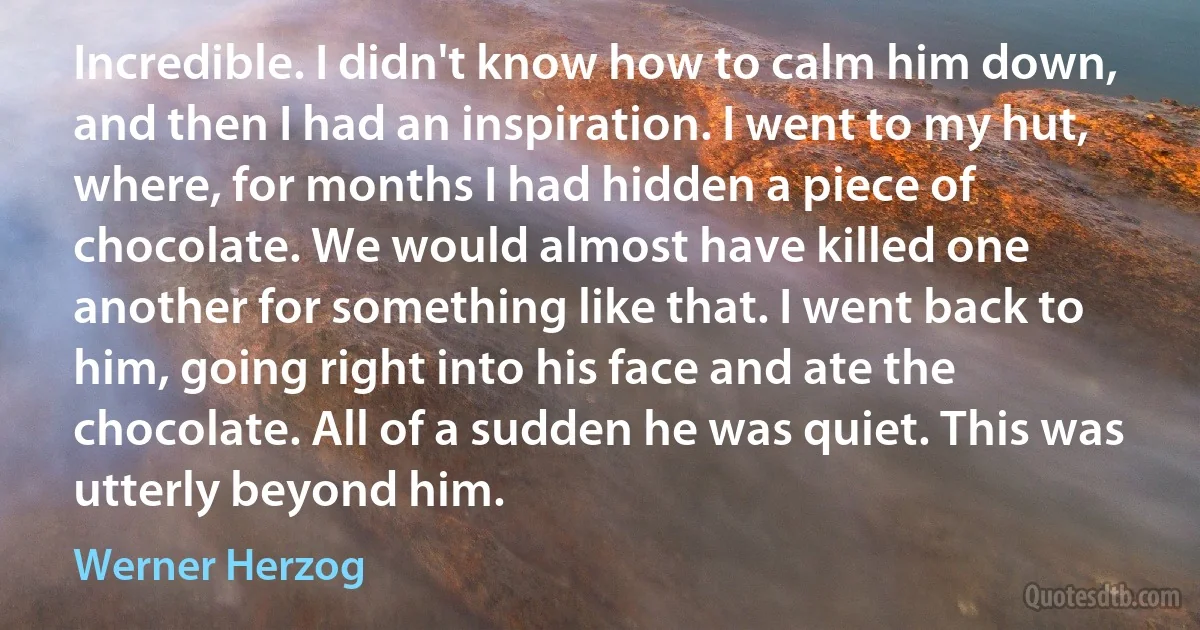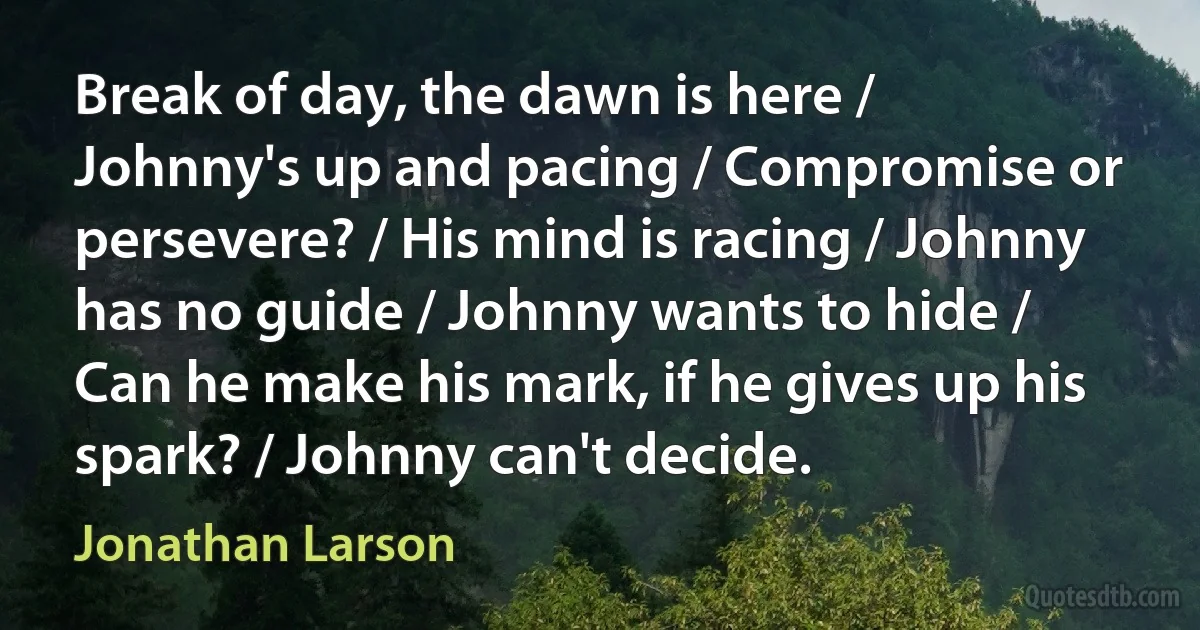Hide Quotes - page 34
The question here is the same as the question I addressed with regard to madness, disease, delinquency and sexuality. In all of these cases, it was not a question of showing how these objects were for a long time hidden before being finally discovered, nor of showing how all these objects are only wicked illusions or ideological products to be dispelled in the light of reason finally having reached its zenith. It was a matter of showing by what conjunctions a whole set of practices-from the moment they become coordinated with a regime of truth-was able to make what does not exist (madness, disease, delinquency, sexuality, etcetera), nonetheless become something.

Michel Foucault
Do not smile at my advice -- the advice of a dreamer who warns you against Kantians, Fichteans, and philosophers of nature. Do not smile at the visionary who anticipates the same revolution in the realm of the visible as has taken place in the spiritual. Thought precedes action as lightning precedes thunder. German thunder is of true Germanic character; it is not very nimble, but rumbles along ponderously. Yet, it will come and when you hear a crashing such as never before has been heard in the world's history, then you know that the German thunderbolt has fallen at last. At that uproar the eagles of the air will drop dead, and lions in the remotest deserts of Africa will hide in their royal dens. A play will be performed in Germany which will make the French Revolution look like an innocent idyll.

Heinrich Heine
OK, David. Here we are on the train to Exeter, to the football club of which I am joint chairman, and where we're doing a charity show with Michael Jackson. You and I have both demonstrated some of the hidden powers of the mind and it would be interesting to hear, David, how you explain some of your incredible achievements.

Uri Geller
We do not know nature; causes hidden in her breast might have produced everything. In your turn, observe the polyp of Trembley: does it not contain in itself the causes which bring about regeneration? Why then would it be absurd to think that there are physical causes by reason of which everything has been made, and to which the whole chain of this vast universe is so necessarily bound and held that, nothing which happens, could have failed to happen,-causes, of which we are so invincibly ignorant that we have had recourse to a God, who, as some aver, is not so much as a logical entity? Thus to destroy chance is not to prove the existence of a supreme being, since there may be some other thing which is neither chance nor God-I mean, nature. It follows that the study of nature can make only unbelievers; and the way of thinking of all its more successful investigators proves this.

Denis Diderot
In these dangerous times, where it seems the world is ripping apart at the seams, we can all learn how to survive from those who stare death squarely in the face every day, and we should reach out to each other and bond as a community, rather than hide from the terrors of life at the end of the millennium.

Jonathan Larson
If there was in all France, between 1140 and 1200, a more typical Englishman of the future Church of England type than John of Salisbury, he has left no trace; and John wrote a description of his time which makes a picturesque contrast with the picture painted by Abélard, his old master, of the century at its beginning. John weighed Abélard and the Schools against Bernard and the Cloister, and coolly concluded that the way to truth lay rather through Citeaux, which brought him to Chartres as Bishop in 1176, and to a mild scepticism in faith. "I prefer to doubt," he said, "rather than rashly define what is hidden."

Henry Adams
It is soft, smooth and shining-like intelligence. Its edges seem sharp but do not cut-like justice. It hangs down to the ground-like humility. When struck, it gives a clear, ringing sound-like music. The strains in it are not hidden and add to its beauty-like truthfulness.' What imagination!

Confucius
For each of us as women, there is a dark place within where hidden and growing our true spirit rises, "Beautiful and tough as chestnut/stanchions against our nightmare of weakness” and of impotence.These places of possibility within ourselves are dark because they are ancient and hidden; they have survived and grown strong through darkness. Within these deep places, each one of us holds an incredible reserve of creativity and power, of unexamined and unrecorded emotion and feeling. The woman's place of power within each of us is neither white nor surface; it is dark, it is ancient, and it is deep.

Audre Lorde
As the origin and basis of all religions, it cannot be the antagonist of any: it is indeed their purifier, revealing the valuable inner meaning of much that has become mischievous in its external presentation by the perverseness of ignorance and the accretions of superstition; but it recognises and defends itself in each, and seeks in each to unveil its hidden wisdom.

Annie Besant
When a man is ill it is not necessarily because he wants to be ill subconsciously. It is not necessarily because he is receiving some hidden psychological benefit, or because the illness fulfills some need. He is ill often - always in fact - because of a distortion that is occurring within the self, and materialized in physical form.

Robert Butts
Part of the unknown reality, then, is hidden beneath language and the enforced pattern of accustomed words-so, for an exercise, look about your environment. Make up new, different 'words' for the objects that you see about you. Pick up any object, for example. Hold it for a few seconds, feel its texture, look at its color, and spontaneously give it a new name by uttering the sounds that come into your mind. See how the sounds bring out certain aspects of the object that you may not have noticed before. The new word will fit as much as the old one did. It may, in fact, fit better. Do this with many objects, following the same procedure. You can instead say the name of any object backwards. In such ways you break up to some extent the automatic patterning of familiar phrases, so that you can perceive the individuality that is within each object.

Robert Butts



